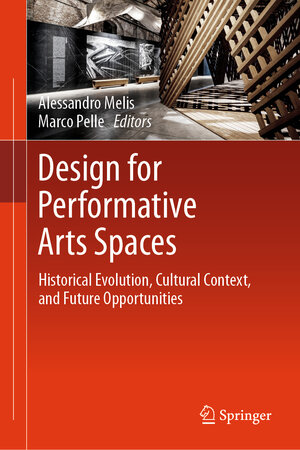
Design for Performative Arts Spaces
Historical Evolution, Cultural Context, and Future Opportunities
herausgegeben von Alessandro Melis und Marco PelleThis comprehensive book explores the multifaceted world of performative arts spaces.
Part I establishes a strong foundation by tracing the historical evolution of these spaces, showcasing iconic examples, and emphasizing the importance of multidisciplinary collaboration within diverse cultural contexts. It also examines the relationship between dance, movement, and embodiment in performative spaces, highlighting their transformative power in times of global challenges.
Part II takes readers on a visionary journey into the future, exploring the transformative potential of cutting-edge technologies. Chapters in this section discuss the interplay of digital arts and architecture, the integration of immersive technologies, adaptive environments, AI and machine learning, robotics, and digital fabrication. These innovations are explored in relation to their ability to enhance audience experiences, optimize performance spaces, and push the boundaries of creativity.
Part III addresses the significant need for comprehensive resources in interior design, digital arts, performing arts, and disruptive technologies. It provides valuable insights for students and professionals alike, covering essential design principles, case studies of notable venues, and the role of performative arts spaces in promoting sustainability amid global crises.
Overall, this book presents a holistic exploration of the most important aspects of performative arts spaces—blending historical context, architectural design, technological advancements, and educational perspectives. It is an essential resource for anyone interested in the dynamic interplay between architecture, design, and the performing arts.



